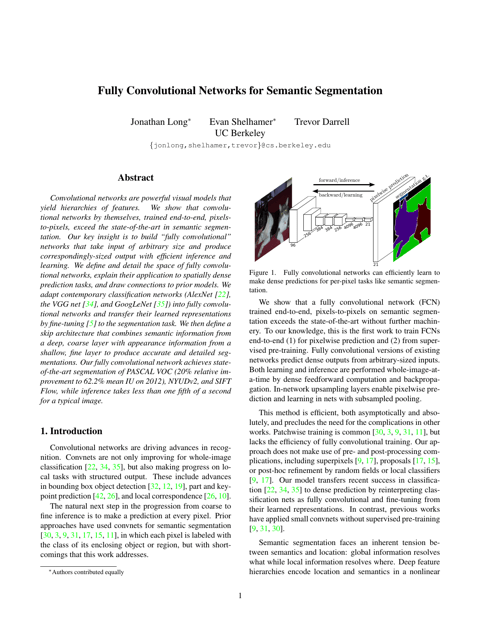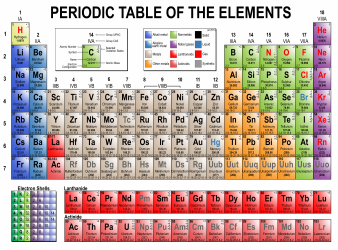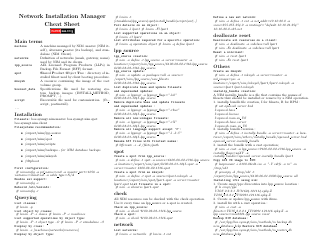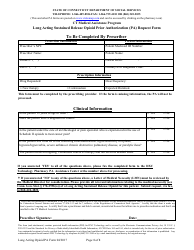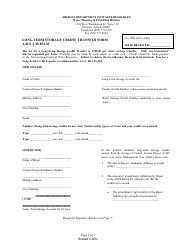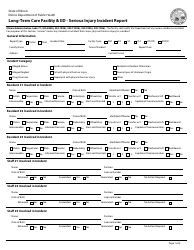Fully Convolutional Networks for Semantic Segmentation - Jonathan Long, Evan Shelhamer, Trevor Darrell
Fully Convolutional Networks for Semantic Segmentation is a research paper by Jonathan Long, Evan Shelhamer, and Trevor Darrell. It introduces a neural network architecture called Fully Convolutional Network (FCN) that is designed specifically for semantic segmentation tasks. Semantic segmentation is the process of assigning a label to each pixel in an image, indicating the category or class it belongs to. The FCN approach leverages convolutional layers to efficiently process images and produce pixel-level predictions, enabling accurate and detailed semantic segmentation.
The authors of the Fully Convolutional Networks for Semantic Segmentation paper are Jonathan Long, Evan Shelhamer, and Trevor Darrell.
FAQ
Q: What is the topic of the document?
A: Fully Convolutional Networks for Semantic Segmentation
Q: Who are the authors of the document?
A: Jonathan Long, Evan Shelhamer, Trevor Darrell
Q: What is semantic segmentation?
A: Semantic segmentation is the task of assigning a label to each pixel in an image, to classify the image at a pixel-level.
Q: What are Fully Convolutional Networks?
A: Fully Convolutional Networks are neural networks designed for efficient and accurate pixel-level predictions.
Q: What is the purpose of semantic segmentation?
A: The purpose of semantic segmentation is to enable computers to understand and interpret images at a detailed level.
Q: What are some applications of semantic segmentation?
A: Some applications of semantic segmentation include autonomous driving, image understanding, and medical image analysis.
Q: What are the advantages of using Fully Convolutional Networks for semantic segmentation?
A: Some advantages of using Fully Convolutional Networks include their ability to handle different input sizes, their efficient computation, and their ability to learn end-to-end pixel predictions.
Q: What are some challenges in semantic segmentation?
A: Some challenges in semantic segmentation include class imbalance, fine-grained details, and accurate boundary delineation.
Q: What is the conclusion of the document?
A: The conclusion of the document likely summarizes the findings and contributions of the authors regarding fully convolutional networks for semantic segmentation.
